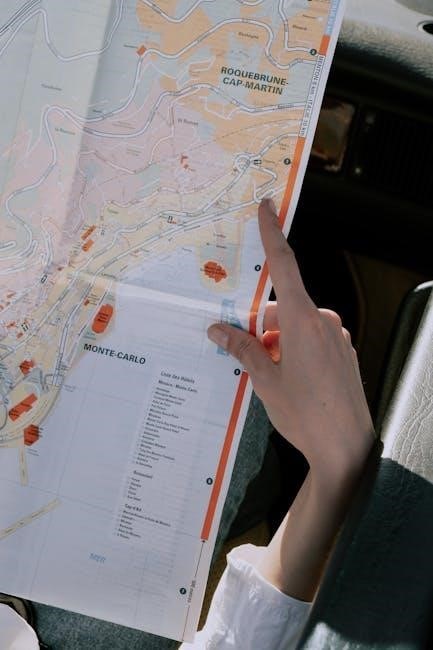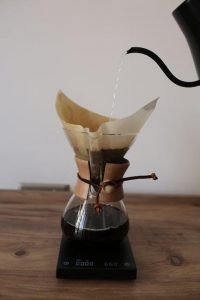
Welcome to the ultimate guide to the Warlock class in Dungeons & Dragons 5th Edition! This enigmatic class combines arcane power with mysterious patronage‚ offering versatility for both new and experienced players. Discover how to optimize your Warlock’s abilities‚ choose the right subclass‚ and master spellcasting to dominate any campaign.

Class Overview
Warlocks wield arcane power through pacts with mysterious beings‚ blending spellcasting with martial prowess. They possess d8 hit dice‚ proficiency in light armor‚ and select skills‚ making them versatile spellcasters with unique playstyles.
Hit Points
Warlocks use a d8 as their hit dice‚ making them relatively durable for a spellcaster. At 1st level‚ they start with 8 hit points plus their Constitution modifier. As they gain levels‚ they earn 1d8 (or 5) hit points plus their Constitution modifier per Warlock level after 1st. This progression ensures Warlocks have average health compared to other classes but are more resilient than most casters. Their reliance on Constitution for survivability means maintaining a decent Con score is crucial‚ especially for melee-focused builds. While they may not have the highest HP‚ their access to spells and abilities helps them manage combat risks effectively. This balance allows Warlocks to thrive in various playstyles‚ whether as a ranged caster or a melee combatant.
Proficiencies
Warlocks are proficient in light armor and simple weapons‚ making them versatile in combat situations. Their proficiency with light armor allows them to wear protective gear without hindering their spellcasting abilities. Additionally‚ they gain proficiency in two skills from a list that includes Arcana‚ Deception‚ History‚ Intimidation‚ Investigation‚ Nature‚ and Religion. These skills reflect their arcane knowledge and manipulative nature‚ making them excellent at deception and understanding magical phenomena.
They also gain proficiency in Wisdom (Perception) and Charisma (Persuasion) saving throws‚ which are crucial for avoiding effects that target their will or awareness. Warlocks do not gain proficiency in any tools‚ which is consistent with their focus on spells and charisma-based abilities. Their skill choices and saving throw proficiencies make them well-rounded characters‚ capable of handling both combat and social interactions effectively.
This combination of proficiencies ensures Warlocks can adapt to various roles in a party‚ whether as a spellcaster‚ a negotiator‚ or a strategist. Their proficiency options also reflect their reliance on intelligence and charisma‚ which are central to their class identity.
Equipment
A Warlock begins their journey equipped with a selection of items that reflect their arcane nature and versatility. They start with a quarterstaff or dagger as their primary weapon‚ alongside leather armor for protection. Additionally‚ they receive a component pouch for casting spells‚ a backpack with provisions‚ and a bedroll for comfort during their travels.
Warlocks also have access to a spellcasting focus‚ which can be an arcane or mystical item that enhances their magical abilities. Their equipment choices emphasize mobility and adaptability‚ allowing them to navigate both combat and exploration seamlessly. The inclusion of a quarterstaff or dagger highlights their capability to engage in melee combat when necessary‚ while leather armor provides adequate defense without hindering their spellcasting.
Overall‚ the Warlock’s starting equipment is well-balanced‚ supporting their role as a versatile spellcaster who can handle a variety of situations. Their gear reflects their reliance on both physical and magical tools‚ making them a flexible and formidable character in any adventuring party.

Ability Scores
Charisma is the Warlock’s primary ability‚ fueling their spellcasting. Constitution is crucial for survivability‚ while Dexterity supports melee builds. Wisdom enhances perception‚ and Strength is less vital but still useful for certain playstyles.
Charisma
Charisma is the cornerstone of a Warlock’s power‚ directly influencing their spellcasting ability and effectiveness. A high Charisma score enhances spell attack rolls and damage‚ making it essential for maximizing your magical impact. Warlocks rely on this ability to channel their patrons’ power‚ so prioritizing Charisma is crucial. Even a small increase in Charisma can significantly improve your spells’ potency‚ making it a primary focus during ability score improvement opportunities. Additionally‚ Charisma affects your proficiency in skills like Deception and Persuasion‚ which are vital for roleplaying and social interactions. While other abilities like Constitution or Dexterity are important for survivability and combat‚ Charisma remains the defining feature of a Warlock’s capabilities. Investing in Charisma ensures your spells are both powerful and effective‚ making you a formidable force on the battlefield and a compelling character in any campaign.
Constitution
Constitution is a critical ability for Warlocks‚ as it directly impacts their hit points and overall survivability. With a hit dice of 1d8‚ Warlocks have average health compared to other classes‚ making Constitution a vital investment. At 1st level‚ your hit points are determined by 8 plus your Constitution modifier‚ while at higher levels‚ you gain 1d8 (or 5) plus your Constitution modifier for each Warlock level after 1st. A high Constitution score not only increases your total hit points but also improves your ability to withstand physical punishment in combat. While Charisma is your primary ability‚ Constitution is essential for ensuring you can endure the rigors of adventuring. Even though Warlocks are not frontline fighters‚ a strong Constitution helps you survive encounters‚ especially when facing enemies who target your relatively lower AC. Investing in Constitution ensures you remain a reliable and durable member of your party‚ capable of withstanding the challenges of Dungeons & Dragons 5th Edition;

Dexterity
Dexterity plays a crucial role for Warlocks‚ particularly those who prefer a more agile or melee-oriented playstyle. While Charisma is your primary ability‚ Dexterity is essential for maintaining a high Armor Class (AC) and improving your initiative. Warlocks are proficient in light armor‚ and a decent Dexterity score ensures you can wear studded leather armor effectively‚ boosting your AC without hindering your spellcasting. For melee-focused Warlocks‚ a Dexterity score of 14 or higher is often recommended to maximize your defensive capabilities. Additionally‚ Dexterity influences your reflex saves‚ which are important for avoiding area effects and other hazards. While Dexterity is not as critical as Charisma‚ it remains a key secondary ability that enhances your survivability and mobility in combat. A higher Dexterity score also improves your attack rolls with ranged weapons‚ making it a worthwhile investment for builds that rely on ranged attacks or need to stay nimble in tight situations. Balancing Dexterity with your other abilities ensures a well-rounded Warlock capable of handling various combat scenarios effectively.
Strength
Strength is generally considered a secondary or even a “dump” stat for most Warlocks‚ as their primary abilities revolve around Charisma. However‚ for players who wish to create a melee-focused Warlock‚ Strength can play a more significant role. A higher Strength score improves your melee attack rolls and damage output‚ making it a viable choice if you plan to engage in close combat frequently. While Charisma remains your most important ability‚ a decent Strength score can complement builds that rely on weapons like hexblades or other melee-focused subclasses. For example‚ the Hexblade subclass can benefit from increased Strength to enhance melee attacks while maintaining strong spellcasting capabilities. That said‚ most Warlocks prioritize Charisma and Dexterity over Strength‚ as their primary power comes from their spells. If you choose to invest in Strength‚ ensure it doesn’t come at the expense of your spellcasting ability. Balancing Strength with other abilities is key to creating a well-rounded Warlock who excels in both combat and magic.
Wisdom
Wisdom is not a primary ability for Warlocks‚ as their spellcasting and many of their class features rely on Charisma. However‚ Wisdom still plays a role in certain aspects of the class. It influences skills like Perception and Insight‚ which can be valuable for detecting hidden enemies‚ reading intentions‚ or avoiding hazards. Additionally‚ Wisdom contributes to saving throws‚ particularly against effects that target your willpower or awareness. While it’s not essential to maximize Wisdom for a Warlock‚ having a decent score can enhance your ability to interact with the environment and make informed decisions during encounters. For example‚ a higher Wisdom score can improve your effectiveness in skills that rely on observation and intuition‚ making you a more versatile and perceptive character. That said‚ Wisdom should not take priority over Charisma or Dexterity‚ as these are far more critical to a Warlock’s core functions. Balancing Wisdom with other abilities ensures your Warlock remains both powerful and capable in various situations.
Intelligence
Intelligence is not a primary or even secondary ability for Warlocks‚ as their spellcasting and most class features are driven by Charisma. However‚ Intelligence does play a minor role in certain contexts. It governs skills like Arcana and Investigation‚ which can be useful for understanding magical phenomena or uncovering hidden secrets. While not essential for a Warlock’s core functionality‚ a decent Intelligence score can enhance your ability to interact with magical effects‚ decipher ancient texts‚ or solve complex puzzles. For example‚ if your Warlock dabbles in creating or analyzing magic items‚ Intelligence can prove beneficial. Additionally‚ some subclass features or multiclass builds might find Intelligence more relevant‚ though this is rare. Ultimately‚ Intelligence should not be prioritized over Charisma or other key abilities like Dexterity or Constitution. However‚ if you’re building a Warlock focused on lore‚ problem-solving‚ or magical exploration‚ consider allocating a few points to Intelligence to round out your character’s capabilities.

Races and Backgrounds
Your Warlock’s race and background shape their identity and abilities. Races like Tiefling or Half-Elf enhance Charisma‚ while backgrounds such as Sage or Acolyte provide skills that complement your spellcasting and roleplay. Choose wisely to optimize your build.
Races
When selecting a race for your Warlock‚ consider how their traits complement your class features. Tieflings are a popular choice due to their innate Charisma boost and access to Hellish Rebuke‚ aligning well with the class’s spellcasting focus. Half-Elves also shine with their +2 Charisma and versatility in skills. Gnomes‚ despite their small size‚ can be intriguing due to their high Intelligence‚ though this is less crucial for Warlocks unless you’re focusing on a more spell-oriented build. Drow‚ with their Dexterity and spell-like abilities‚ offer a unique playstyle‚ especially for Hexblade Warlocks. Dragonborn can provide a sturdy foundation with their Strength and breath weapon‚ though this may not synergize as strongly with a spellcaster like the Warlock. Ultimately‚ the choice of race should reflect both your desired playstyle and the story you want to tell with your character.
Backgrounds
Your Warlock’s background shapes their origin story and initial skills‚ offering a rich narrative foundation. The Acolyte background is ideal for those who served a higher power before turning to their patron‚ granting Insight and Religion skills. Sage is perfect for scholarly Warlocks‚ providing Arcana and History skills‚ which align well with spellcasters. Entertainer fits charismatic Warlocks‚ emphasizing performance and deception. Outlander suits those who forged their power in isolation‚ offering Survival and Nature skills. Noble or Courtesy backgrounds can create intriguing contrasts‚ suggesting a life of luxury before a pact; Each background adds unique flavor‚ so choose one that reflects your character’s journey to becoming a Warlock. These backgrounds not only enhance gameplay but also enrich your character’s lore‚ making them stand out in any campaign.

Subclasses
Warlock subclasses offer unique playstyles‚ with Hexblade granting dark‚ cursed abilities and Undead enhancing resilience and necrotic power. Other subclasses introduce diverse mechanics‚ allowing players to tailor their Warlock’s theme and combat style to their preference.
The Hexblade
The Hexblade is a powerful subclass that draws power from a mysterious‚ often malevolent force. It excels in dealing consistent damage and controlling the battlefield. At 3rd level‚ Hexblade’s Curse allows you to curse a creature‚ granting advantage on attacks and ability checks against them. This feature is particularly devastating when combined with spells like Hex‚ amplifying damage output. Additionally‚ the Hexblade’s Curse can be reapplied‚ making it a flexible and reliable tool in combat. At higher levels‚ the subclass gains access to dark‚ thematic abilities such as Beckoning Shadow and Armor of Shadows‚ enhancing mobility and survivability. The Hexblade is a top choice for players seeking a mix of damage‚ control‚ and utility‚ making it one of the most popular Warlock subclasses in D&D 5e.
The Undead
The Undead subclass offers a unique twist‚ blending dark magic with the power of undeath. It provides abilities that enhance survivability and deal necrotic damage‚ making it a compelling choice for players who enjoy a more macabre playstyle. At 3rd level‚ the subclass grants resistance to poison damage and the ability to ignore poison effects‚ making your Warlock more durable in combat. Additionally‚ you gain access to the Chill Touch cantrip‚ which deals necrotic damage and slows enemies‚ adding utility to your arsenal. At higher levels‚ the subclass unlocks powerful abilities such as Undead Resilience‚ which grants immunity to disease and exhaustion‚ and Undead Nature‚ allowing you to regenerate hit points at the start of your turn. These features make the Undead subclass a strong option for players seeking a resilient and thematically cohesive Warlock build.
Other Subclasses
Beyond the Hexblade and the Undead‚ the Warlock class offers several other intriguing subclasses‚ each with unique abilities and playstyles. The Archfey‚ for instance‚ channels the power of fey patrons‚ granting access to charm and illusion magic‚ making it ideal for players who enjoy manipulating enemies and controlling the battlefield. The Fiend subclass‚ meanwhile‚ draws power from infernal beings‚ offering fire resistance and healing abilities‚ which make it a strong choice for front-line combatants. Another notable option is The Great Old One‚ which focuses on psychic powers and mysterious abilities‚ appealing to those who enjoy a more enigmatic and unpredictable playstyle. Lastly‚ The Shadow subclass‚ introduced in Xanathar’s Guide to Everything‚ allows Warlocks to harness darkness and teleport through shadows‚ making it a versatile choice for stealth and mobility. Each subclass provides distinct mechanical and thematic options‚ ensuring there’s a Warlock build for every kind of player.

Spellcasting
Warlocks wield arcane power through their patrons‚ casting spells with a unique system. They know a set number of spells‚ learning more as they level up. Spell slots are limited but versatile‚ allowing for strategic use of higher-level magic.
How Warlock Spellcasting Works
Warlock spellcasting is unique‚ relying on a limited number of spell slots that refresh after a short or long rest. They use their spell slots to cast higher-level spells‚ with the flexibility to “upcast” lower-level spells into higher slot levels. This system allows for strategic use of their limited resources‚ making each spell choice impactful. Unlike other casters‚ Warlocks do not gain access to their full spell list automatically; instead‚ they learn specific spells as they level up‚ choosing from a curated list tied to their patron. Their spellcasting ability is tied to Charisma‚ though some subclasses may use a different ability score. Warlocks also gain access to cantrips‚ simple spells that can be cast without using spell slots. This system emphasizes versatility and tactical decision-making‚ making Warlocks a dynamic and powerful class in any campaign.
Cantrips
Cantrips are a cornerstone of a Warlock’s magical arsenal‚ allowing them to cast simple yet effective spells without expending precious spell slots. These spells are learned at the start of a Warlock’s journey and remain a reliable tool throughout their career. Examples like Eldritch Blast and Chill Touch provide consistent damage options‚ while Mage Hand and Prestidigitation offer utility. Cantrips scale with the Warlock’s level‚ ensuring they remain relevant even as the game progresses. They are particularly valuable for handling minor tasks or attacking enemies without depleting spell slots. For instance‚ Booming Blade can be used to enforce melee combat‚ while Green-Flame Blade enhances melee attacks with extra damage. Cantrips also serve as a failsafe for situations where spell slots are depleted. Their versatility and lack of resource cost make them indispensable for any Warlock‚ allowing them to adapt to various combat and exploration scenarios seamlessly.
The Warlock class in Dungeons & Dragons 5th Edition offers a unique blend of arcane power and mysterious patronage‚ making it a versatile and engaging choice for players. With their reliance on spellcasting and ability to adapt to various roles‚ Warlocks can excel as damage dealers‚ controllers‚ or even supporters. The choice of subclass‚ such as the Hexblade or Undead‚ further enhances their customization‚ allowing players to craft a character that fits their preferred playstyle. While managing spell slots can be challenging‚ cantrips provide a reliable fallback‚ ensuring Warlocks remain effective even in prolonged encounters. By focusing on Charisma and selecting the right spells‚ Warlocks can dominate the battlefield or manipulate scenarios with ease. Whether you’re a seasoned veteran or a new player‚ the Warlock’s flexibility and flavor make it a compelling option for any campaign. Experiment with different builds and subclasses to unlock the full potential of this enigmatic class. Happy adventuring!




